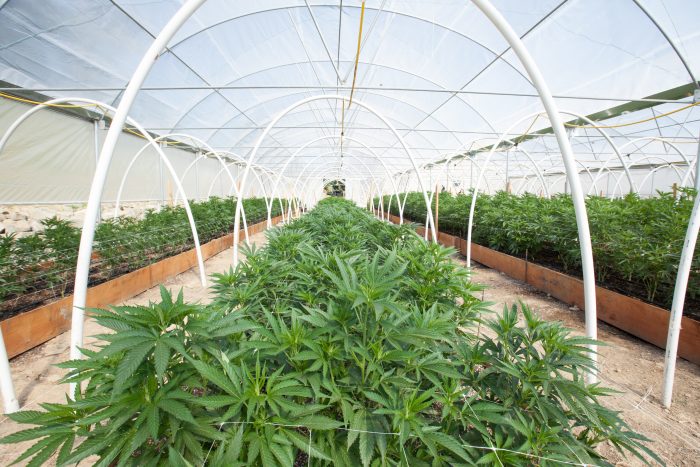Cannabis License Info
Oklahoma has selected Metrc as the state regulatory reporting system. BioTrack has a long-standing integration with Metrc and will continue to provide our Oklahoma partners with the same industry-leading software and service you have come to expect. You can learn more about how BioTrack works with Metrc here.
As of November 7, 2018 Amendment 2 has passed in Missouri, legalizing growing, manufacturing, selling and consuming marijuana and marijuana products for medicinal use at the state level. In January 2020, Missouri’s Department of Health and Senior Services (DHSS) awarded the first 192 dispensary licenses in the state.
The Department of Health and Senior Services is tasked with implementing the provisions of Article XIV. This includes but is not limited to:
- Issuing registrations to qualified patients and their primary caregivers.
- Licensing and certification of medical marijuana cultivation facilities.
- Licensing and certification of medical marijuana dispensary facilities.
- Licensing and certification of medical marijuana-infused products manufacturing facilities.
- Licensing and certification of medical marijuana testing facilities.
Please note; while we aim to keep these pages fully up to date with the latest information, cannabis laws are always changing. We encourage you to verify these rules and regulations in the official legal text, which can be found here.
FAQs
What are the legal purchase and possession limits in Missouri?
Qualifying patients may only purchase, or have purchased on their behalf by their primary caregivers, four (4) ounces of dried, unprocessed marijuana per qualifying patient, or its equivalent, in a thirty-day period.
What conditions qualify for a medical marijuana card?
Qualifying medical conditions as diagnosed by a physician includes the condition of, symptoms related to, or side-effects from the treatment of:
- Cancer
- Epilepsy
- Glaucoma
- Intractable migraines unresponive to other treatment
- A chronic medical condition that causes severe, persistent pain or persistent muscle spasms, including, but not limited to, those associated with multiple sclerosis, seizures, Parkinson’s disease, and Tourette’s syndrome
- Debilitating psyciatric disorders, including, but not limited to, post-traumatic stress disorders, if diagnosed by a state licensed psychiatrist
- Human immunodeficiency virus or acquired immune deficiency syndrome
- A chronic medical condition that is normally treated with a perscription medication that could lead to physical or psychological dependence, when a physician determines that medical use of marijauna could be effective in treating that conditiona nd would serve as a safer alternative to the perscription medication
- Any terminal illness
- In the professional judgement of a physician, any other chronic, debilitating or other medical condition, including, but not limited to, hepatitis C, amyotrophic lateral sclerosis, inflammatory bowel disease, Crohn’s disease, Huntington’s disease, autism, neuropathies, sickle cell anemia, agitation of Alzheimer’s disease, cachexia, and wasting syndrome.
Can I grow my own medical marijuana?
Yes, however you must first obtain a patient cultivation card which is an additional $100 fee.
Then each patient can grow up to six flowering plants, six nonflowering plants (over fourteen inches tall), and six clones (plants under fourteen inches tall) at any given in time a single, enclosed locked facility.
What are the equivalencies for concentrates and infused products?
Is medical marijuana taxed?
Yes, dispensaries are required to charge a tax set by the state on all medical marijuana sold in Missouri.
Is BioTrack approved for use in Missouri?
Yes, BioTrack has been awarded one of the first 6 medical cannabis “seed-to-sale” licenses to operate in Missouri.
Can BioTrack be used in a medical marijuana grow?
Yes, BioTrack is a full vertical software that can be utilized to improve operations in grows, manufacturing facilities, and dispensaries.
Can BioTrack be used in a medical marijuana manufacturing facility?
Yes, BioTrack is a full vertical software that can be utilized to improve operations in grows, manufacturing facilities, and dispensaries.
Can BioTrack be used in a medical marijuana dispensary?
Yes, BioTrack is a full vertical software that can be utilized to improve operations in grows, manufacturing facilities, and dispensaries.
Does BioTrack integrate with Metrc?
Yes, BioTrack will directly integrate with the Metrc system to help ensure accuracy and timeliness of reporting the required Metrc data points.
Why not just use Metrc?
Metrc is simply a reporting tool used by the state to track plants for quality and safety and to prevent diversion to the black market. Without BioTrack reporting to the Metrc system is time consuming and prone to errors.
BioTrack provides you with an easy integration to the Metrc system, but more importantly with the tools you need to run a successful and efficient business.
Read more about this topic here.
How large can a grow be under one license?
- Indoor facility utilizing artificial lighting – 30,000 square ft of flowering plant canopy space
- Outdoor facility utilizing natural lighting – no more than 2,800 flowering plants
- Greenhouse utilizing both natural and artificial lighting – can choose when licensed between either no more than 2,800 flowering plants or 30,000 square ft of flowering plant canopy space
What records does my grow need to keep?
Facilities must keep records, by month and by batch, of all pesticides, herbicides, fertilizers, and other agricultural chemicals applied to marijuana plants and growing medium during production and processing at its facility for at least five (5) years.
How long do I need to keep records?
All records must be kept for a period of no less than 5 years.
Request a DemoMissouri Seed-to-Sale Traceability Info
Here is an overview of the rules and regulations that can be addressed using seed to sale cannabis tracking software.
(1) Access to Seed-to-Sale Tracking System Certifications.
(A) The department will not limit the number of certifications available for seed-to-sale tracking system entities.
(B) The department will begin accepting applications for review on August 3, 2019. All complete applications received by the department that are submitted on or after that date will be approved or denied within one hundred fifty (150) days of that application’s submission. An application will be considered complete if it includes all information required for applications by this rule. The department will notify an applicant if an application is incomplete and will specify in that notification what information is missing. Applicants will be given seven (7) days to provide missing information. Failure to provide missing information may result in denial of the application.
(C) The department shall charge an application fee for a seed-to-sale certification and also an annual fee once a certification is granted. The first annual fee will be due thirty (30) days after a certification is issued and shall be due annually on that same date as long as the certification remains valid. The department shall publish the current fees, including any adjustments, on its website at http://medicalmarijuana.mo.gov. The amount of fees due will be the amount that is effective as of the due date for the fee.
(2) Application Requirements. All applications for seed-to-sale tracking system certifications shall include at least the following information:
(A) Name and address of the applicant;
(B) Legal name of the entity, including any fictitious business names, and a certificate of good standing from the Missouri Office of the Secretary of State;
(C) An attestation by an owner or principle of the entity that the seed-to-sale tracking system can and will comply with this rule; and
(D) All applicable fees or proof that all applicable fees have already been paid.
(3) Seed-to-Sale Tracking System Requirements. All seed-to-sale tracking systems used by cultivation, manufacturing, dispensary, testing, and transportation facilities shall be capable of—
(A) Interfacing with the statewide track and trace system such that a licensed or certificated facility may enter and access information in the statewide track and trace system as required for inventory control and tracking by 19 CSR 30-95.040(4)(G) and for purchase limitations by 19 CSR 30-95.080(2)(C);
(B) Providing the department with access to all information stored in the system’s database;
(C) Maintaining the confidentiality of all patient data and records accessed or stored by the system such that all persons or entities other than the department may only access the information in the system that they are authorized by law to access; and
(D) Producing analytical reports to the department regarding— 1. Total quantity of daily, monthly, and yearly sales at the facility per product type; 2. Average prices of daily, monthly, and yearly sales at the facility per product type; and 3. Total inventory or sales record adjustments at the facility.
(4) Seed-to-Sale Tracking System Prohibitions.
(A) No certified seed-to-sale tracking system entities may begin operations before signing the department’s Medical Marijuana Application Programming Interface User Agreement.
(B) No seed-to-sale tracking system entity may sell seed-to-sale tracking services or services related to compliance with seed-to-sale tracking regulations to a licensed or certified facility if it is owned by or affiliated with an entity that holds a contract with the state of Missouri for any product or service related to the department’s medical marijuana program.
(5) Failure to comply with this rule and failure to abide by the department’s Medical Marijuana Application Programming Interface User Agreement may result in revocation of certification.
Please note that this page is meant to serve as a resource and not an official set of requirements.






